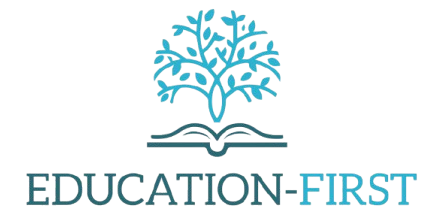Research the Company
Know the Basics: Learn about the company’s history, mission, values, and products/services. Familiarize yourself with their culture and recent news to show your interest and preparation.
Understand the Role: Go beyond the job description. Understand how your skills align with the role and how you can contribute to the company’s goals.
Practice Common Interview Questions
Tell Me About Yourself: Prepare a concise but compelling answer that highlights your professional background, skills, and what draws you to the role.
Why Do You Want to Work Here?: Focus on the company’s reputation, its values, and how the job aligns with your career goals.
What Are Your Strengths and Weaknesses?: Choose strengths that are relevant to the role, and when discussing weaknesses, mention how you’re working to improve them.
Describe a Challenge You’ve Overcome: Have a specific example ready that highlights your problem-solving skills, adaptability, and resilience.
Prepare Questions for the Interviewer
Asking insightful questions demonstrates your interest in the company and the role. Some examples include:
- “Can you describe the company’s culture?”
- “What does success look like in this role?”
- “What opportunities for growth and development does the company offer?”
- “How does the team collaborate and communicate?”
- “Will there be any chances of internal promotions for me?”
Dress Appropriately
Know the Dress Code: Research the company’s dress code (formal, business casual, creative). Aim to dress slightly more formal than the company’s usual attire to show you take the interview seriously.
Be Well-Groomed: Make sure you look clean, polished, and professional. Pay attention to your hair, nails, and overall appearance.
Be On Time
Arrive Early: Arriving 10-15 minutes early shows punctuality and gives you time to relax before the interview begins.
Test Technology for Virtual Interviews: If it’s a virtual interview, test your camera, microphone, and internet connection in advance to avoid technical issues.
Show Confidence (But Don’t Overdo It)
Body Language: Maintain good posture, make eye contact, and offer a firm handshake (if in person). Smile and appear engaged during the conversation.
Speak Clearly: Avoid rambling or speaking too fast. Take a moment to gather your thoughts if needed before answering questions.
Be Clear and Concise in Your Responses
Avoid long-winded answers. Use the STAR method (Situation, Task, Action, Result) to structure your responses to behavioral questions. This method ensures you provide a clear, focused answer with tangible examples.
Show Enthusiasm and Interest
Demonstrate your passion for the role and the company. Speak with enthusiasm about how your experience makes you a good fit for the job and how you’re excited about the opportunity.
Highlight Your Soft Skills
Employers are looking for candidates with strong technical skills, but soft skills such as communication, teamwork, adaptability, and problem-solving are equally important. Highlight these in your answers, providing examples of how you’ve successfully used them in previous roles.
Address Gaps or Issues Honestly
If there are gaps in your employment history or other potential concerns (such as lack of experience in a specific area), address them honestly. Focus on how you’ve gained transferable skills, how you’ve grown, and what you’ve learned during those times.
Know Your Resume
Be prepared to discuss everything on your resume in detail, including any skills, experiences, and achievements listed. Be ready to explain how these qualifications relate to the role you’re applying for.
Follow the Interviewer’s Lead
Pay attention to the interviewer’s cues. If they seem pressed for time, wrap up your answers efficiently. If they seem relaxed, feel free to elaborate more on your experiences.
Avoid Negative Talk
Never speak negatively about previous employers, colleagues, or experiences. Instead, focus on what you learned from past challenges or how you would handle situations differently in the future.
Mind Your Online Presence
Ensure that your social media profiles, particularly LinkedIn, are professional and align with your resume. Many employers will look you up online before or after the interview.
Follow Up After the Interview
Send a Thank-You Email: Within 24 hours, send a personalized thank-you email to express gratitude for the opportunity to interview. Reiterate your interest in the role and briefly highlight why you’re a great fit.
Bonus Tips for Virtual Interviews:
- Set Up a Quiet Space: Ensure you’re in a quiet, well-lit environment with minimal distractions.
- Look at the Camera: While talking, look at the camera instead of the screen to simulate eye contact.
- Keep Notes Handy: You can have a few notes nearby to refer to during the interview, but avoid reading directly from them.
By following these interview tips, you’ll be better prepared, more confident, and more likely to make a positive impression on your potential employer. Good luck and we wish you the best!
If you would like to have a mock interview with us (for any job), then:
Email us at info@education-first.co.uk



